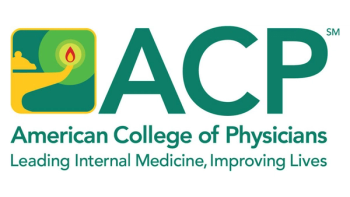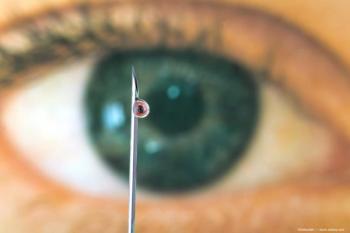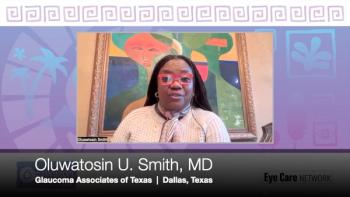
Realizing the fullness of life
The play "Our Town" may be three-quarters of a century old, but my feeling is that there is a message here for today’s ophthalmologists. I sometimes think there is a risk that we physicians can get caught up in the minutiae of medical practice-transitioning to electronic medical records, fighting for pre-authorizations to get our patients the treatments they need, dealing with the Byzantine system of medical billing, etc.
First performed in 1938, the Thornton Wilder play “Our Town” received the Pulitzer Prize for drama. The setting is a small town in New England, and instead of props, the actors use pantomime to act out their roles, like cooking imaginary meals in invisible kitchens and pretending to deliver bottles of milk from a transparent van drawn by a non-existent horse. As a result, our focus is entirely on the characters and their interactions, with everything orchestrated by a character known as “The Stage Manager.”
In Act I, baseball star George Gibbs and pretty Emily Webb are two schoolmates who begin to feel affection for each other. George’s mother, Julia, speaks about her dream of traveling to Paris.
In Act II, 3 years later, we learn that love has bloomed. George decides to forego college so he can marry Emily, become a farmer, and devote himself to being a responsible husband. George and Emily are married, excited about the life ahead of them.
In Act III, 9 years later, Emily, who has died in childbirth, is about to be buried. While her funeral service is conducted, Emily speaks with the dead souls who inhabit the cemetery. Among them is her mother-in-law, Julia, who never made it to Paris, having assumed there would be always be a time in the future to make the trip.
How fleeting is life
Emily misses her life and-against the advice of the dead souls in the cemetery-decides to relive part of it. She steps back in time to the morning of her twelfth birthday, observing her young and beautiful parents and the hustle and bustle among the living characters. The experience is too painful for her, as she appreciates how fleeting is life and that it is not valued adequately by the living.
“Oh, earth,” she laments, “you’re too wonderful for anybody to realize you.”
Emily returns to the cemetery where she settles in next to her deceased mother-in-law, while her husband George kneels and weeps.
Emily asks the Stage Manager if there are any humans who fully realize the fullness of life while they live it.
“No,” he says. “The saints and poets, maybe-they do some.”
Only the audience members with the severest of dry eyes are not moistening up by the end of Act III. The Christian Science Monitor reported that in 1946 the Soviet Union banned the production of “Our Town” in the Russian sector of occupied Berlin “on the grounds that the drama is too depressing and could inspire a German suicide wave.”
According to The New York Times, “Wilder makes a profound statement about the limits of human understanding here, one that requires delicacy and a little steel to convey. “ ‘Our Town’ is one of the toughest, saddest plays ever written,” Edward Albee has said.
Still relevant today
This play may be three-quarters of a century old, but my feeling is that there is a message here for today’s ophthalmologists. I sometimes think there is a risk that we physicians can get caught up in the minutiae of medical practice-transitioning to electronic medical records, fighting for pre-authorizations to get our patients the treatments they need, dealing with the Byzantine system of medical billing, etc.
As a result, we risk forgetting to experience fully the happiness that comes from helping the sick, the joy of restoring a person’s vision, or the opportunity to show empathy and support for someone with a disease we cannot cure.
References
Play ‘Our Town’ is Banned in Soviet Berlin Sector, Christian Science Monitor, Feb. 13, 1946, p. 13.
Newsletter
Don’t miss out—get Ophthalmology Times updates on the latest clinical advancements and expert interviews, straight to your inbox.





























